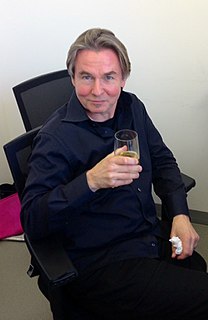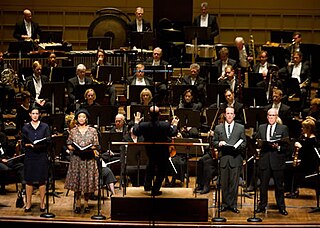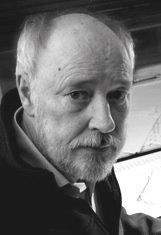Related Research Articles

The Pulitzer Prize for Poetry is one of the seven American Pulitzer Prizes awarded annually for Letters, Drama, and Music. It first presented in 1922 for a distinguished volume of original verse by an American author, published during the preceding calendar year.

The Pulitzer Prize for Music is one of seven Pulitzer Prizes awarded annually in Letters, Drama, and Music. It was first given in 1943. Joseph Pulitzer arranged for a music scholarship to be awarded each year, and this was eventually converted into a prize: "For a distinguished musical composition of significant dimension by an American that has had its first performance in the United States during the year."
Although a concerto is usually a piece of music for one or more solo instruments accompanied by a full orchestra, several composers have written works with the apparently contradictory title Concerto for Orchestra. This title is usually chosen to emphasise soloistic and virtuosic treatment of various individual instruments or sections in the orchestra, with emphasis on instruments changing during the piece. It differs from sinfonia concertante in that it has no soloist or group of soloists that remains the same throughout the composition.

Esa-Pekka Salonen is a Finnish orchestral conductor and composer. He is principal conductor and artistic advisor of the Philharmonia Orchestra in London, conductor laureate of the Los Angeles Philharmonic, and music director-designate of the San Francisco Symphony.
David Walter Del Tredici is an American composer. He has won a Pulitzer Prize in Music and is a former Guggenheim and Woodrow Wilson fellow. Del Tredici is considered a pioneer of the Neo-Romantic movement. He has also been described by the Los Angeles Times as "one of our most flamboyant outsider composers".

Steven Edward Stucky was a Pulitzer Prize-winning American composer.
Pines of Rome is a four-movement symphonic poem for orchestra completed in 1924 by the Italian composer Ottorino Respighi. The piece, which depicts pine trees in four locations in Rome at different times of the day, is the second of Respighi's trilogy of tone poems based on the city, along with Fountains of Rome (1917) and Roman Festivals (1928). It premiered on 14 December 1924 at the Augusteo Theatre in Rome with Bernardino Molinari conducting the Augusteo Orchestra, now known as the Orchestra dell'Accademia Nazionale di Santa Cecilia.
Hila Plitmann is an operatic soprano specializing in the performance of new works.
Bernard Rands is a British-American contemporary classical music composer. He studied music and English literature at the University of Wales, Bangor, and composition with Pierre Boulez and Bruno Maderna in Darmstadt, Germany, and with Luigi Dallapiccola and Luciano Berio in Milan, Italy. He held residencies at Princeton University, the University of Illinois, and the University of York before emigrating to the United States in 1975; he became a U.S. citizen in 1983. In 1984, Rands's Canti del Sole, premiered by Paul Sperry, Zubin Mehta, and the New York Philharmonic, won the Pulitzer Prize for Music. He has since taught at the University of California, San Diego, the Juilliard School, Yale University, and Boston University. From 1988 to 2005 he taught at Harvard University, where he is Walter Bigelow Rosen Professor of Music Emeritus. For his notable students, See: List of music students by teacher: R to S#Bernard Rands.

Kanon Pokajanen is a 1997 composition by Arvo Pärt for four-part (SATB) choir. The text is the "Canon of Repentance to Our Lord Jesus Christ", an Orthodox hymn. The text is sung in Church Slavonic and following the tradition of Russian sacred choral music, it is sung a cappella.
Christopher Chapman Rouse III was an American composer. Though he wrote for various ensembles, Rouse is primarily known for his orchestral compositions, including a Requiem, a dozen concertos, and six symphonies. His work received numerous accolades, including the Kennedy Center Friedheim Award, the Grammy Award for Best Classical Contemporary Composition, and the Pulitzer Prize for Music. He also served as the composer-in-residence for the New York Philharmonic from 2012 to 2015.

Anders Erik Birger Eliasson was a Swedish composer.

The Pulitzer Prize is an award given to the best authors in all aspects of writing for authoring pieces of exceptionally high quality. In 1984, the recipients were:
SONOR was UCSD's Resident Contemporary Music Ensemble. Performing between 1977 and 2006, the group presented 37 concerts. Members included UCSD Faculty such as Philip Larson, Edwin Harkins, Carol Plantamura, János Négyesy, John Fonville, Robert Zelickman, Steven Schick, Charles Curtis, Aleck Karis, Peter Farrell, Bertram Turetzky as well as associates and graduate students such as Päivikki Nykter, Hugh Livingston, Susan Barrett, Ross Karre, Rob Esler, Fabio Oliveira, Gregory Stuart, Justin Dehartand, and Orin Hildestad. Conductors and Directors included Bernard Rands, Paul Dresher, Rand Steiger, Jean-Charles Francois, Thomas Nee, Jan Williams, and Keith Humble.

The Fringes of the Fleet is a booklet written in 1915 by Rudyard Kipling (1865–1936). The booklet contains essays and poems about nautical subjects in World War I.
The Trombone Concerto is a concerto for trombone and orchestra by the American composer Christopher Rouse. The work was commissioned by the New York Philharmonic for its principal trombonist Joseph Alessi. It was completed on April 5, 1991, and was first performed by Alessi and the New York Philharmonic conducted by Leonard Slatkin on December 30, 1992, in Avery Fisher Hall, New York City. The concerto is dedicated to the composer and conductor Leonard Bernstein, who died suddenly October 14, 1990. In 1993, the work was awarded the Pulitzer Prize for Music.

Die Tageszeiten is a choral composition written for male voice choir and orchestra by Richard Strauss (1864–1949), TrV 256, Op. 76. It consists of four movements: "The Morning", "Afternoon Peace", "The Evening" and "The Night". The lyrics are based on four poems of the same names by Joseph Eichendorff (1788–1857) from his collection Wanderlieder. The work was premiered on 21 July 1928 with the Wiener Schubertbund and the Vienna Philharmonic as part of the Schubert centenary.
One Sweet Morning is a four-movement song cycle for mezzo-soprano solo and orchestra by the American composer John Corigliano. The work was jointly commissioned by the New York Philharmonic and the Shanghai Symphony Orchestra to commemorate the 10th anniversary of the September 11 attacks. It was given its world premiere on September 30, 2011, by the mezzo-soprano Stephanie Blythe and the New York Philharmonic under the conductor Alan Gilbert. The piece is dedicated to the memory of Natalie and Serge Koussevitzky.
Giuseppe "Pippo" Rinaldi, known as Kaballà, is an Italian musician and singer/songwriter.
The Symphony No. 3 is a symphony for orchestra by the American composer Ellen Taaffe Zwilich. The work was commissioned by the New York Philharmonic to commemorate their sesquicentennial anniversary. It was first performed by the New York Philharmonic conducted by Jahja Ling on February 25, 1993. The symphony is dedicated "with love and admiration" to Kurt Masur and the New York Philharmonic.
References
- ↑ Randolph, Eleanor (April 17, 1984). "1984 Pulitzer Prizes Stress In-Depth Reporting On Social Issues". The Washington Post . Retrieved August 25, 2020.
- ↑ Mellor, Andrew (June 2019). "RANDS Piano Conerto (Jonathan Biss)". Gramophone . Retrieved August 25, 2020.